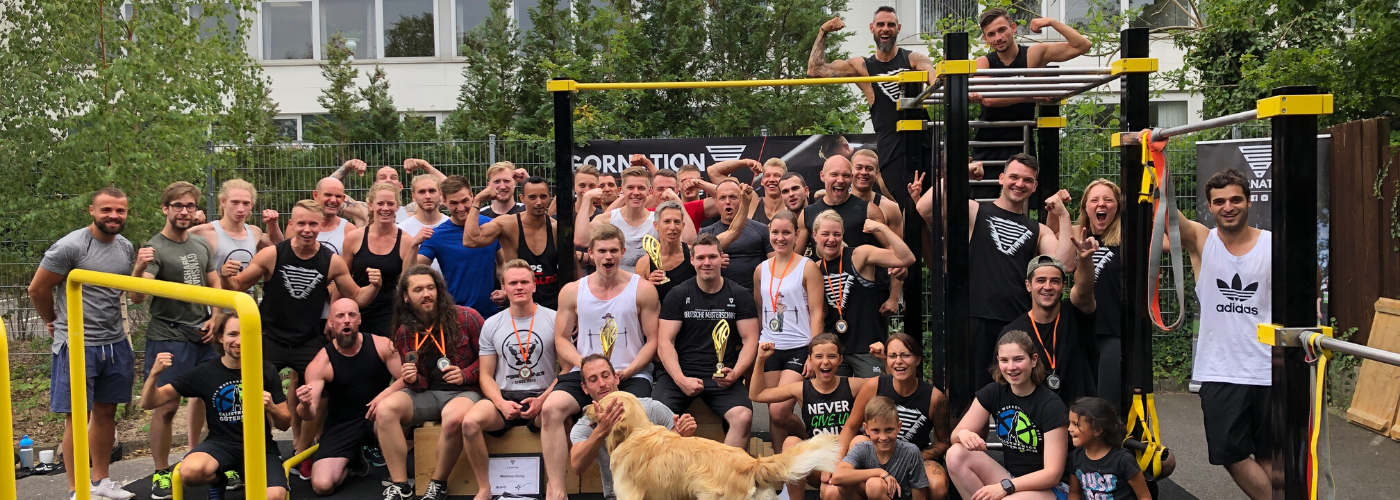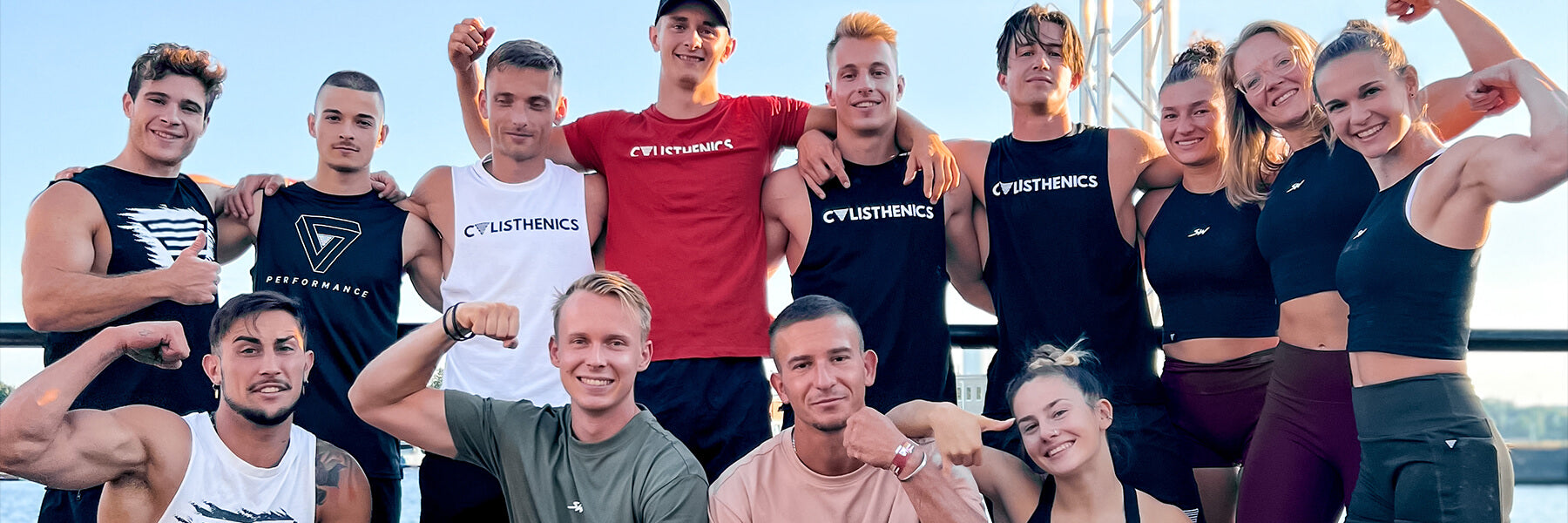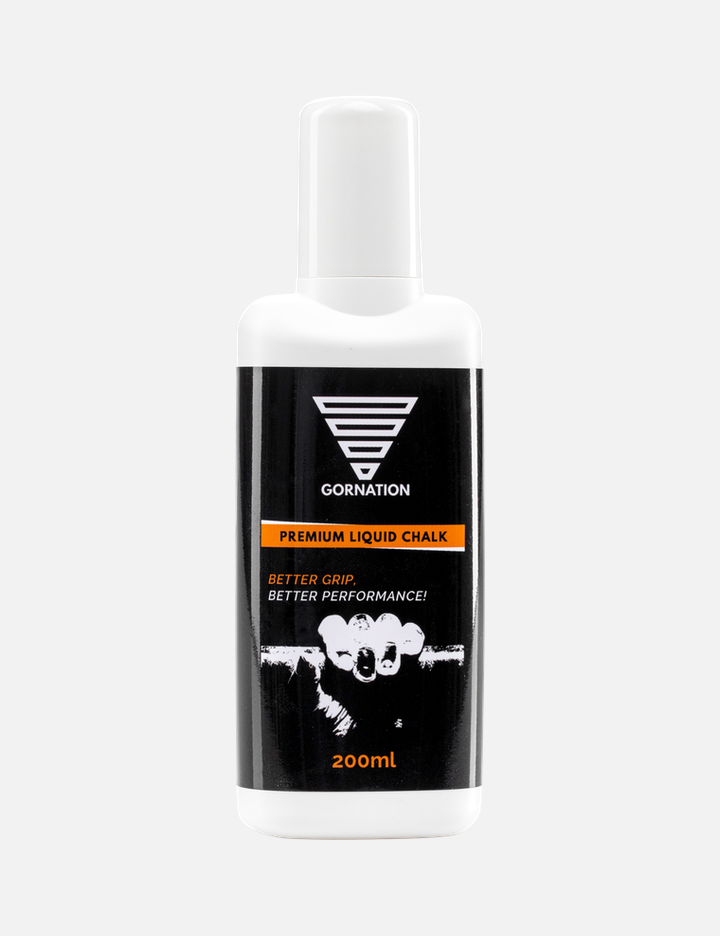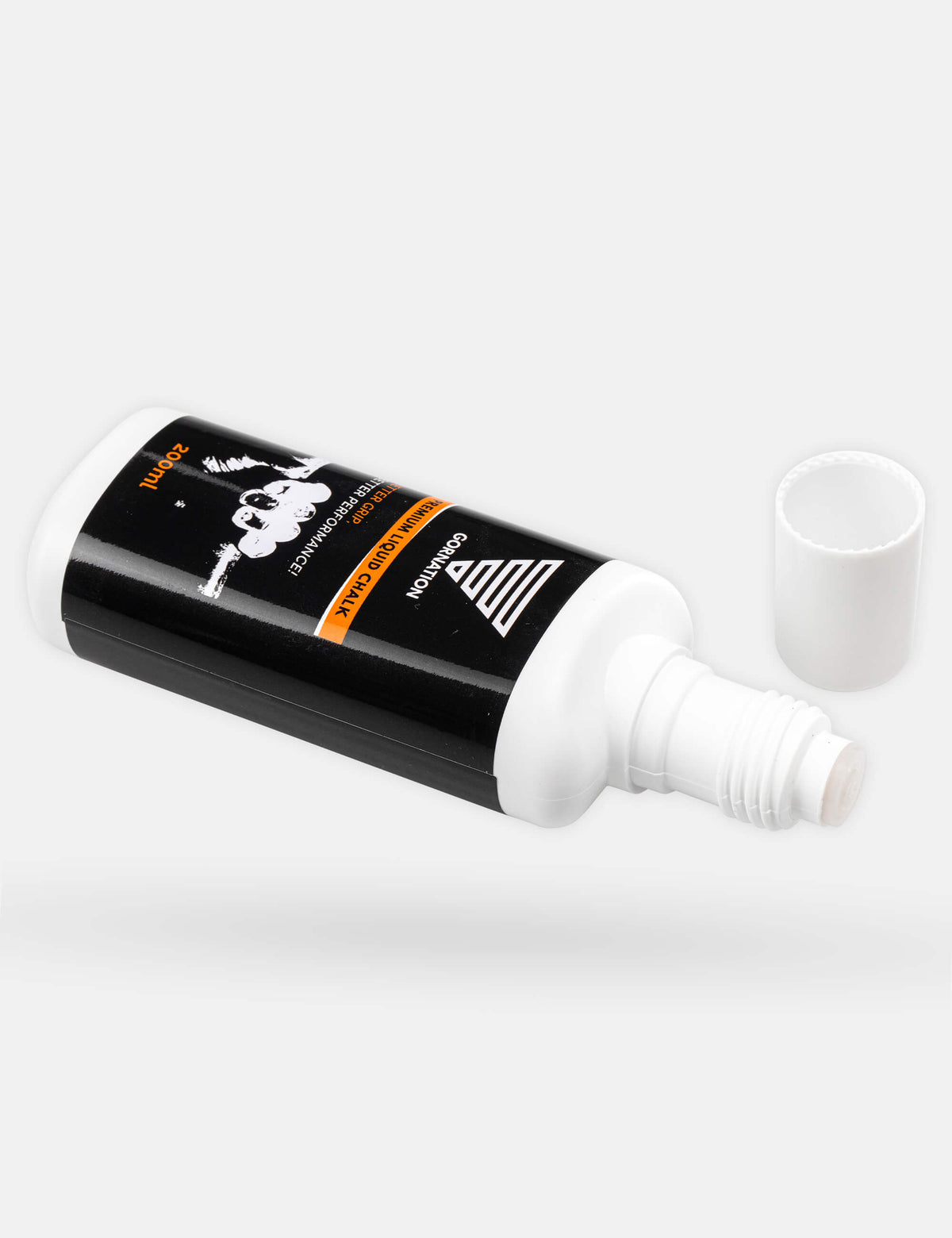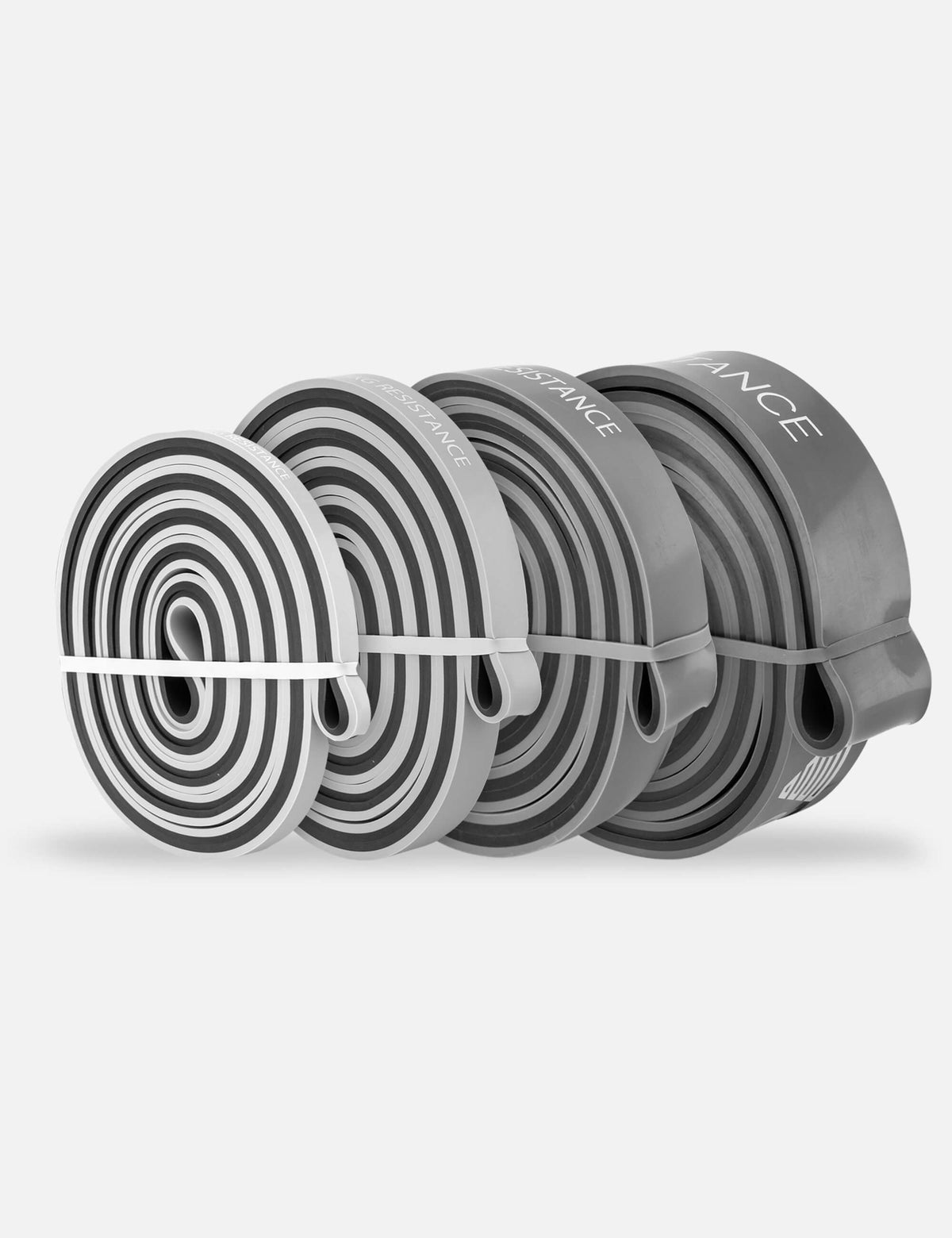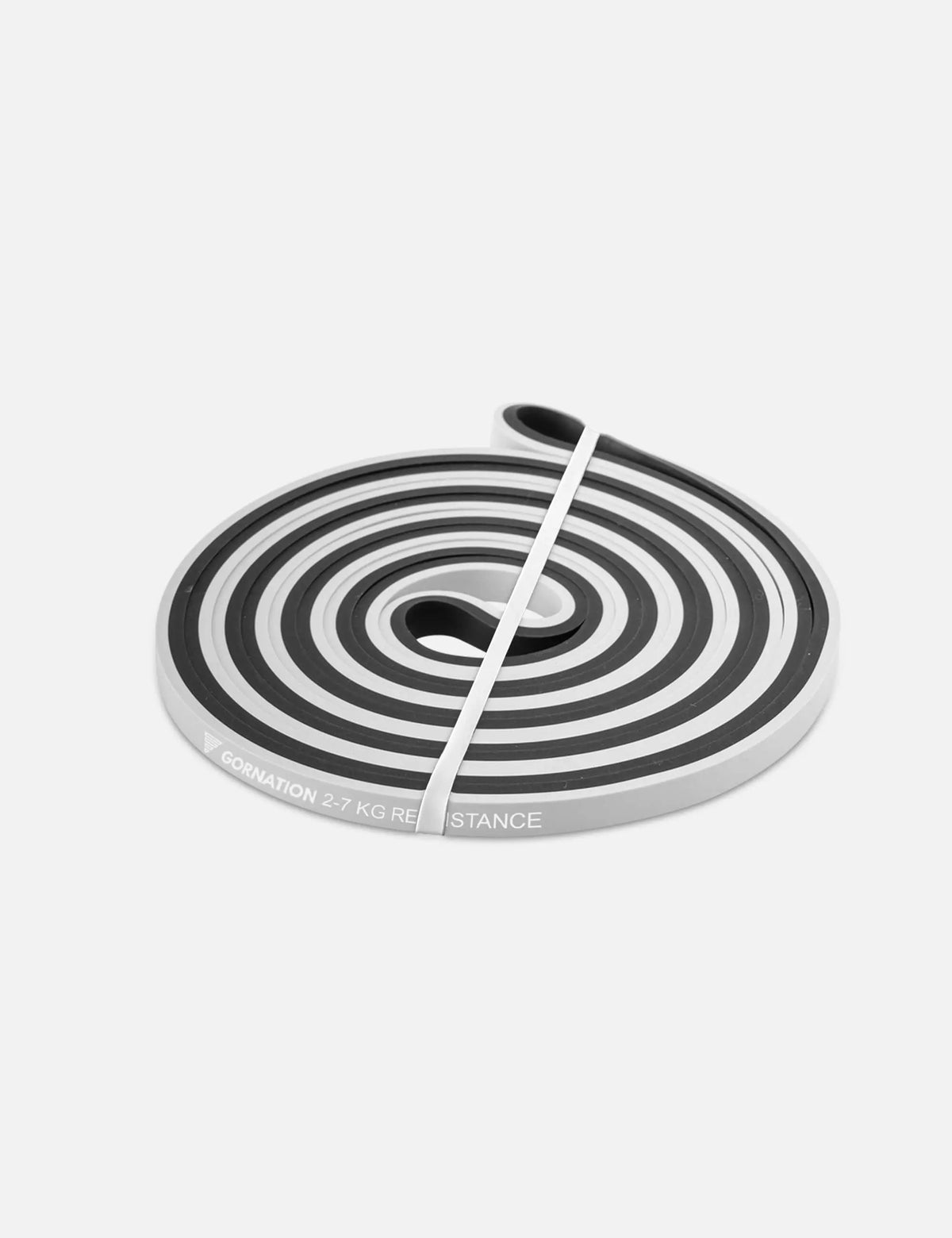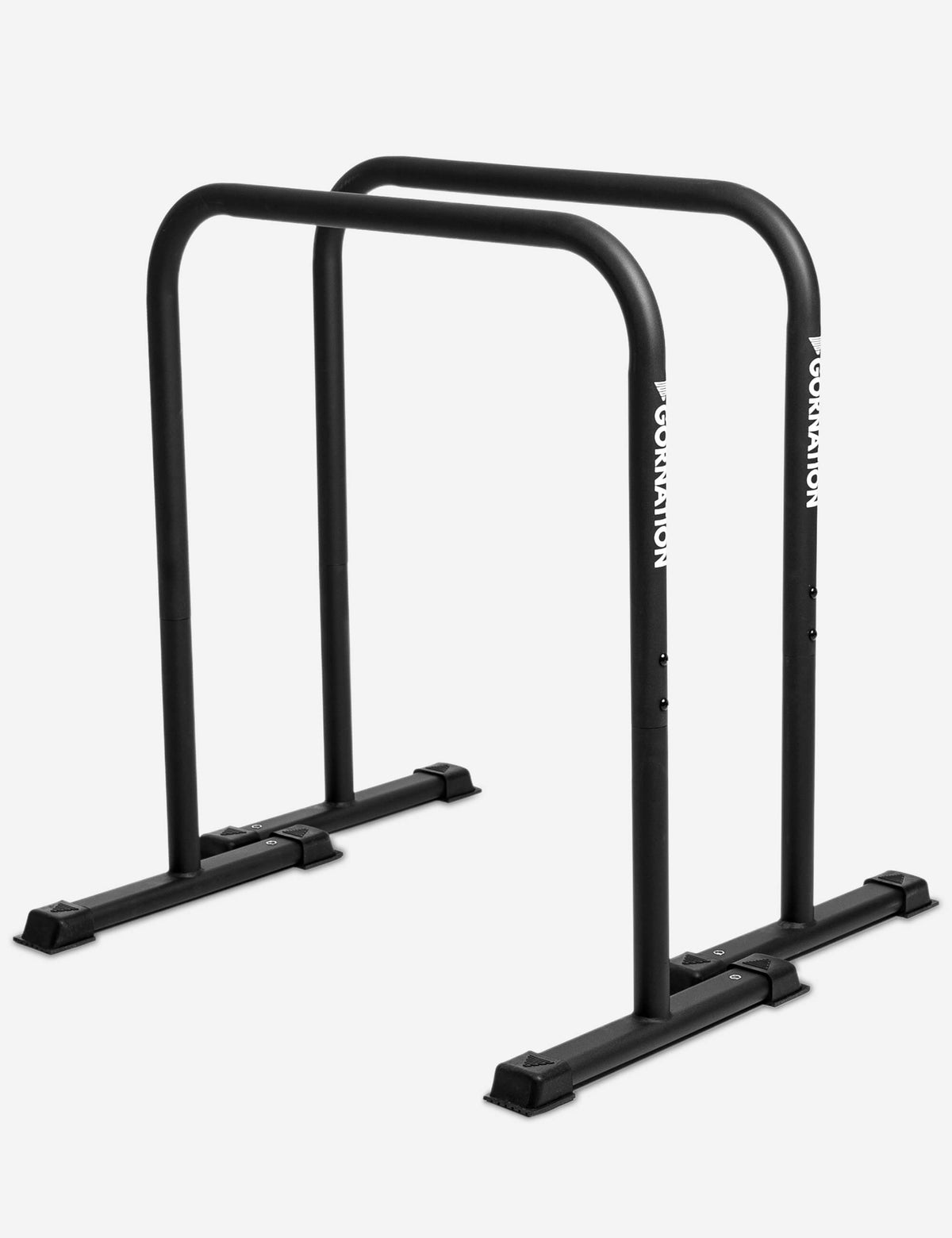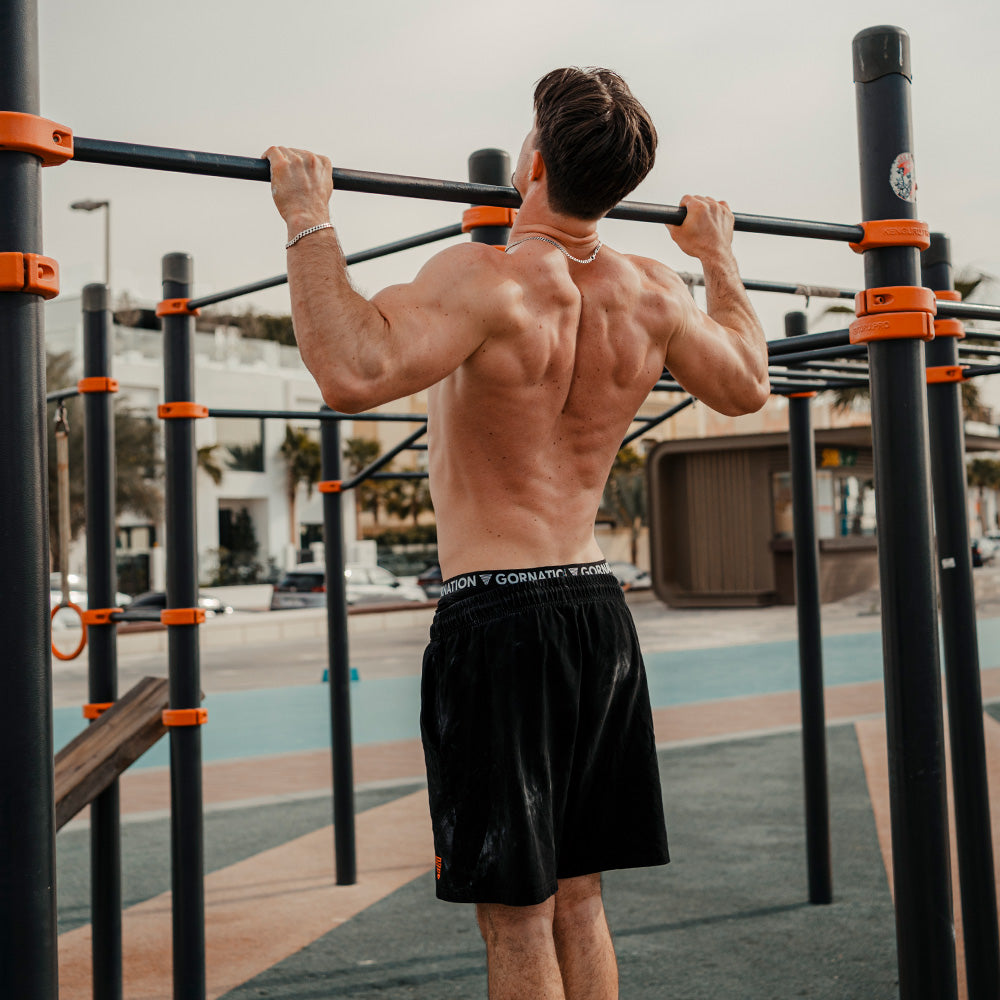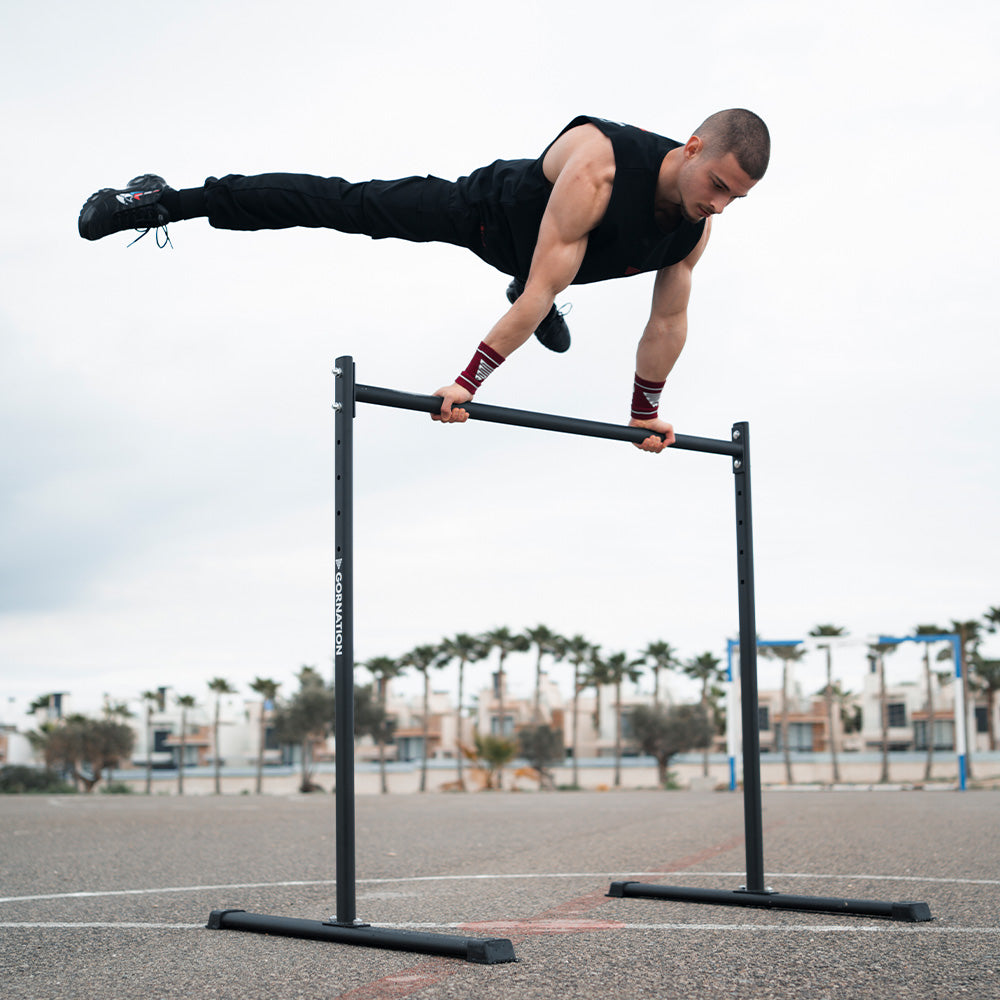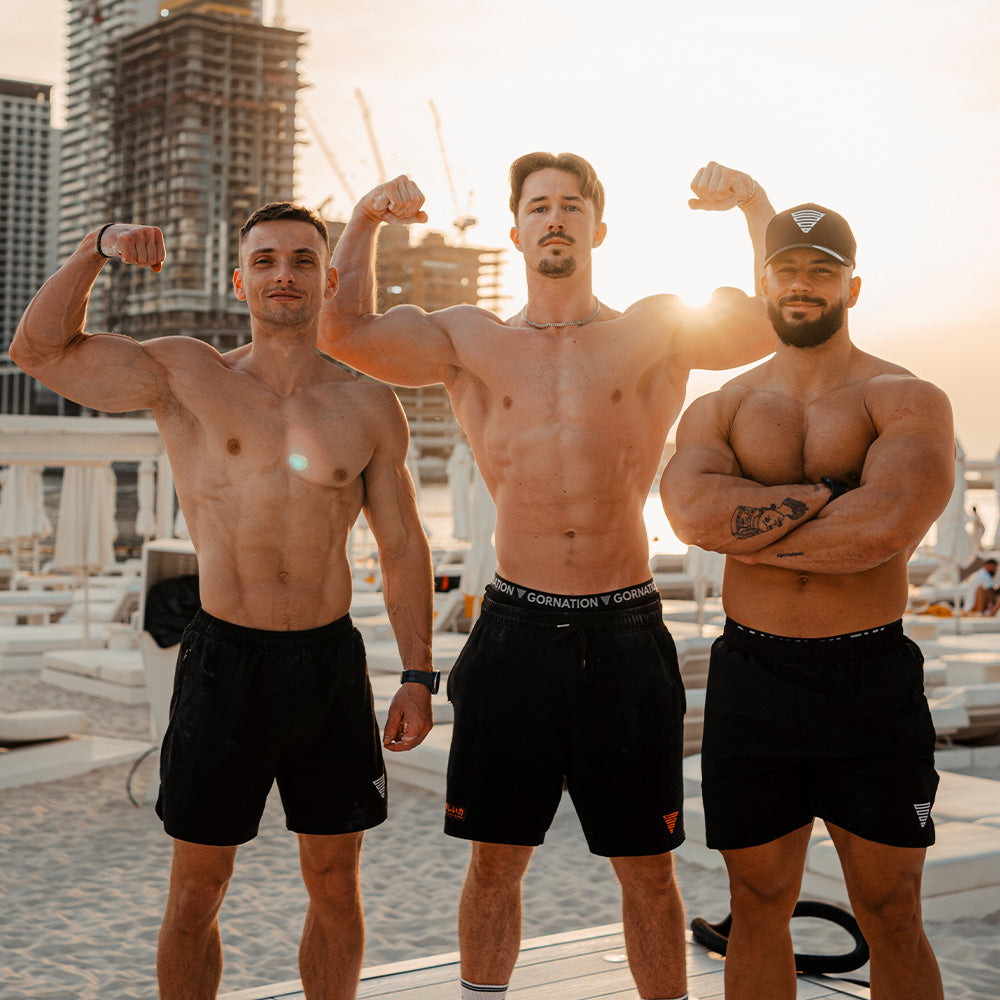If you look at the athletes taking part in a competition, you will notice relatively quickly that most of them wear wrist wraps. These are not the typical bandages used in fitness or bodybuilding for calisthenics, street workout, CrossFit and other functional sports, but specially cut "fabric strips" made of a less stretchy fabric and without Velcro. This article will show you what these Wrist Wraps are all about and why they are so popular for functional fitness.

What is the difference between normal wrist wraps and functional wrist wraps?
In this article I will distinguish between "Wrist Wraps" (the common term for the special bandages) and wrist bandages (the typical fitness and bodybuilding bandages). The second have the following disadvantages:
- The bandages must be opened and reapplied for more/less tension
- The Velcro closure prevents a general fit for everyone, especially with thinner wrists
- You usually have a thumb loop
The challenge now is to support the wrist and to bypass the points above. Because what you have to admit to the fitness wrist bandages: they offer a lot of support and there is more weight and repetitions in training with them in it.

Functional Wrist Wraps, as shown in green here, on the other hand, have
- a closure with a tape that cannot be soiled. We recommend silicone print on the tape so that the Wrist Wrap holds well and stays closed.
- In addition, the Wrist Wraps fit everyone, as there is no Velcro closure which hinders the flexibility of size adjustment. Wrist Wraps are therefore suitable for women, as well as men and children
- no thumb loop, because the fixation is also possible without rubber on the thumb
- thinner fabric, which is more comfortable to wear, less likely to cause sweating and yet extremely well supported
At the end of November, we released the Light Wrist Wraps, the third type of wrist wraps, so that all training goals and preferences are covered.

Wondering which wraps are right for you?
Basically, you can say that they differ in the ratio of support to mobility of the wrist. The more fixed a wrist is, the more stable it is, though the more immobile it is.
The Power Wrist Wraps give you maximum stability and can be closed tightly thanks to the thumb loop and Velcro closure. Thus, they are best suited for heavy repetitions in weighted or heavy statics.
The new Light Wrist Wraps are the exact opposite. They are very light & soft and give some stability with maximum freedom of movement. They are comfortable to wear e.g. in handstands or push ups on the floor, where the wrist has to bend far and needs a lot of freedom of movement.
The Performance Wrist Wraps are a "middle ground" between the other two bandages. They provide better support than the Light Wrist Wraps due to the stiffer material, while offering more ROM (Range of Motion) than the Power Wrist Wraps. This makes them most popular as typical calisthenics wraps for Statics & Dynamics athletes.

The range of motion plays a major role in the choice of wrist bandages for training
Most functional sports involve performing complex and different exercises such as handstands, pull-ups, dips or muscle ups. All of these exercises can use wrist support, as there is a lot of abrupt stress on the joints. However, the exercises require different degrees of support. For a handstand on the floor, it is important that the hand can be bent completely and that the supporting bandage allows this range of motion. If this is not the case, the back of the hand hurts and the bandage presses firmly into the flesh.
This is the reason why many athletes choose the easily adjustable and thinner Wrist Wraps: To easily change the level of support of the Wrist Wraps between different exercises, e.g. during a superset, and have the support at the right place in the range of motion.

The right way to put the Wrist Wraps - a guide
There are two criticisms of Wrist Wraps that can be dealt with by putting them on properly, namely that the Wrist Wraps give too little support and that they are difficult to wrap.

Binding is actually a bit of getting used to the first few times, as the fixing of the beginning is the most important part. You take the straight end of the Wrist Wraps and hold it in the palm of your hand with your ring and middle finger, make one turn around your wrist and now you have to fix the held area for the next turns. The most important thing is that the beginning doesn't rotate, so that the whole Wrist Wraps are tight and can be turned looser or tighter later.
Here you can see a video tutorial on how to wrap Wrist Wraps:
You want to get started with your own Wrist Wraps?
We have developed the optimal Wrist Wraps through experience and exchange with professional athletes. Strong fabric for sufficient support, silicone print on the straps and storage bag for a relaxed transport in your gym bag.
 | 3.700+ recensioni
| 3.700+ recensioni Spedizione gratuita EU a 100€*
Spedizione gratuita EU a 100€* 200.000+ clienti in tutto il mondo
200.000+ clienti in tutto il mondo 30 giorni di restituzione
30 giorni di restituzione


